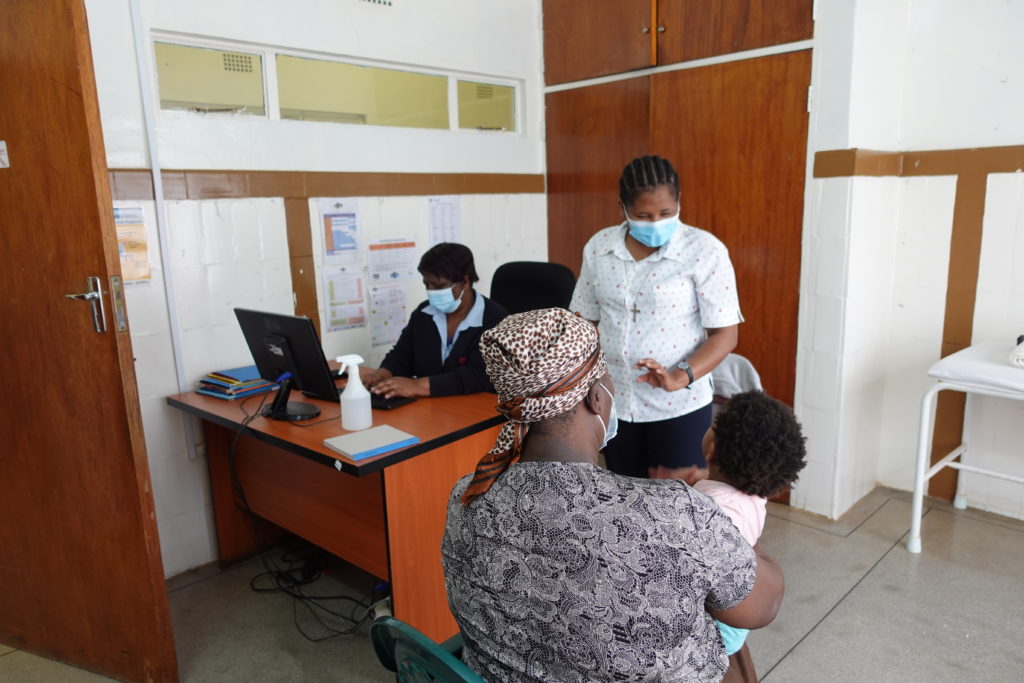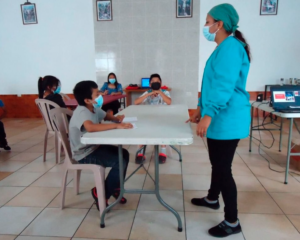The pandemic has dominated our lives again for another year. Wearing face masks, frequent hand-washing, physical distancing and limiting social interaction have protected populations and health care systems. Although these restrictions have helped keep health workers safe, they have also made the role more complex. How do you communicate effectively from behind a face mask? How do you comfort the person you are caring for when you are discouraged from touching them? How do you reach people when they are isolating at home? How do you support one another when you can’t meet and talk together?
Our health services have continued to face issues they had never contemplated and discovered solutions they had never before considered, cared for their communities even when suffering their own personal trauma and worked harder than ever to cover sick workmates to ensure health care remained available. We give thanks for the daily efforts of every individual involved in our health care services. Your compassion and respect in your daily interaction with those in need and with each other brings to life our mission to be the hands and feet of Jesus, expressing his love in the world.

At the beginning of the pandemic, there were hopes it would be a common denominator capable of bringing the world together. So far, this hope remains unfulfilled. As 2021 drew to a close, the heads of the International Monetary Fund, World Bank Group, World Health Organization and World Trade Organization were still working hard to accelerate accessibility and use of COVID-19 vaccinations in low and lower middle income countries where vaccination rates remain very low.
The urgency of these efforts is reflected in our own experience. In Australia and Argentina, more than 70% of the population is double vaccinated and a third-dose booster program has begun, while in Eswatini and Guatemala a little over a quarter of the population have received two doses and, in Ethiopia, only 1.3%[1]. For us, these are not just numbers on a page but represent real people in the communities we are serving. The IHC has recently established an advocacy working party to explore how we can use our experience to contribute to local and international vaccination advocacy efforts to complement the direct care services provided on the ground.

We have also taken the first tentative steps towards etablishing a program of excellence in cervical cancer, thanks to Professor Raviglione’s involvement in a research project to be conducted in Eswatini. Despite cervical cancer being curable if diagnosed and treated early, it is the most common cause of cancer death in women in sub-Saharan Africa. Preliminary work conducted at the University of Milan demonstrated the virus that causes cervical cancer can be detected in urine, thereby avoiding all the technical and cultural issues associated with traditional pap smear screening. It is hoped the use of a dried urine spot sample in this operational research project will make access to cervical cancer screening and treatment much more widely available, thereby avoiding deaths. Primary prevention through immunisation is also on our advocacy agenda.
Whilst our efforts remain humble in face of the overwhelming need, as Pope Francis reminded us in his homily at Midnight Mass: “God does not rise up in grandeur, but lowers himself into littleness. Littleness is the path that he chose to draw near to us, to touch our hearts, to save us and to bring us back to what really matters.” May this message remain our touchstone in the year ahead.
Cath Garner
Chair, International Health Commission
The International Health Commission (IHC) is a collaboration of health professionals and MSCs that provide guidance to strengthen the MSC-sponsored health ministries.
[1] See https://ourworldindata.org/covid-vaccinations

